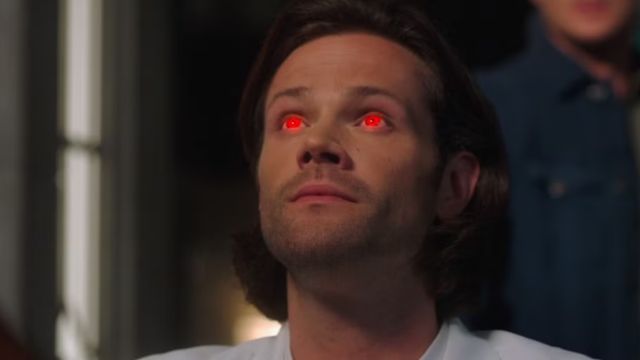The enduring television series Supernatural has presented viewers with many famous characters, although few have made as profound an impression as Lucifer. Portrayed by Mark Pellegrino, Lucifer serves as a primary antagonist in the series, unleashing chaos and devastation in his wake.
As a fallen archangel and sovereign of Hell, his presence in the series has been pivotal to several of the most severe fights. Does Lucifer perish on Supernatural? Fans have deliberated his destiny, and in this essay, we will examine all aspects of Lucifer’s path in the story, his conflicts, and his final outcome.
Who is Lucifer in Supernatural?
Lucifer is among the most formidable celestial entities in Supernatural. He is depicted as the archetypal fallen angel, expelled from Heaven by God for his refusal to submit to humanity. His animosity against his father and profound disdain for humanity propel numerous deeds throughout the series.
Introduced in Season 5, Lucifer serves as the principal enemy of the Apocalypse narrative, with the Winchester brothers, Sam and Dean, striving to thwart his efforts to instigate the world’s destruction. He exploits individuals, controls vessels (including Sam Winchester), and pursues retribution against his adversaries, especially Michael and God.
Despite being incarcerated numerous times, Lucifer persistently reemerges, employing his guile and power to evade capture and cause chaos. His erratic disposition, along with Mark Pellegrino’s captivating yet threatening performance, renders him one of the most unforgettable antagonists in Supernatural.
Does Lucifer Die in Supernatural?

The destiny of Lucifer is a subject of considerable debate, owing to his frequent appearances and alleged losses. Indeed, Lucifer perishes in Supernatural, but not merely on one occasion. Throughout the story, he is repeatedly slain, yet returns in diverse manners. His definitive demise transpires in Season 13.
Lucifer’s initial demise occurs in the Season 5 finale, titled Swan Song. Lucifer inhabits Sam Winchester as his vessel, however Sam reasserts control at a pivotal juncture. Assisted by Dean, he plunges himself—and Lucifer—into Lucifer’s Cage in Hell. This was intended to be his definitive defeat; however, as Supernatural enthusiasts are aware, death is not invariably permanent in this reality.
After being confined for multiple seasons, Lucifer discovers a means of return in Season 11. He coerces Castiel into becoming his vessel, so acquiring a new corporeal form. Nonetheless, his rule is ephemeral as Amara, referred to as The Darkness, inflicts grave injuries upon him and ostensibly annihilates him. Once more, it seems like Lucifer has departed permanently, however this is far from accurate.
The most pivotal and conclusive demise of Lucifer transpires in the Season 13 finale, Let the Good Times Roll. Following his resurgence and reestablishment as a significant menace, Lucifer confronts Sam, Dean, and Jack, his progeny.
In a climactic confrontation, Dean, inhabited by the archangel Michael, ultimately vanquishes Lucifer with an archangel blade, ensuring his permanent demise.
This moment signifies the definitive conclusion of Lucifer’s character arc in the series. In contrast to his prior demises, there are no indications of his resurgence this time. His essence is entirely obliterated, culminating his narrative arc.
What Was the Impact of Lucifer’s Death on the Narrative of Supernatural?

Lucifer’s ultimate defeat had significant repercussions for Supernatural. His demise enabled the Winchester brothers to redirect their attention onto the escalating fight with God. This also facilitated Jack, Lucifer’s son, in becoming a pivotal character in the show’s last seasons.
The absence of Lucifer altered the equilibrium of power among celestial entities, resulting in new alliances and conflicts. His absence necessitated a reconfiguration of operations in Heaven and Hell, since one of their most formidable entities was no longer there to sway occurrences.
Lucifer’s appearance in Supernatural influenced several pivotal narratives in the series. His activities directly impacted Sam and Dean’s odyssey, the emergence of significant celestial entities, and the final confrontation between God and His creations. His bond with his son, Jack, introduced an additional emotional dimension to his character, revealing aspects of his flaws.
Despite his role as a villain, Lucifer’s cleverness, hubris, and macabre humor endeared him to fans. His relationship with the Winchesters, especially his manipulation of Sam, was a reoccurring motif that enriched the show’s narrative.
Although Supernatural resurrected numerous characters, Lucifer’s ultimate demise in Season 13 was conclusive and irrevocable. His character arc completed its cycle, transitioning from the primary antagonist to his final demise at the hands of Dean and Michael.
His exit profoundly affected the series, concluding the narrative arc of one of the most deadly adversaries the Winchester brothers encountered.
Desire to explore further details on your preferred Supernatural figures and narratives? Explore our website for the most recent insights, episode analysis, and character evaluations!


